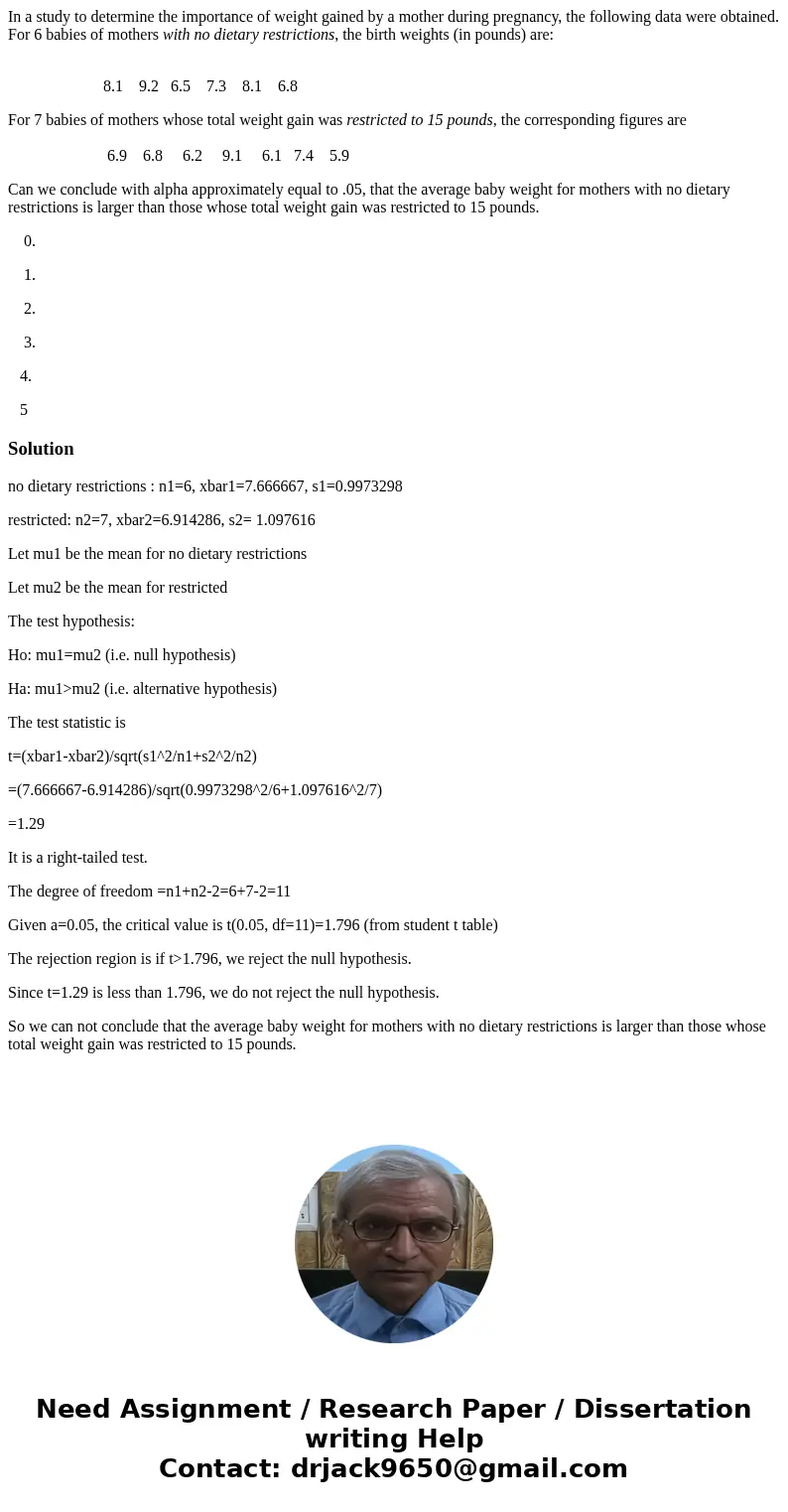In a study to determine the importance of weight gained by a
In a study to determine the importance of weight gained by a mother during pregnancy, the following data were obtained. For 6 babies of mothers with no dietary restrictions, the birth weights (in pounds) are:
8.1 9.2 6.5 7.3 8.1 6.8
For 7 babies of mothers whose total weight gain was restricted to 15 pounds, the corresponding figures are
6.9 6.8 6.2 9.1 6.1 7.4 5.9
Can we conclude with alpha approximately equal to .05, that the average baby weight for mothers with no dietary restrictions is larger than those whose total weight gain was restricted to 15 pounds.
0.
1.
2.
3.
4.
5
Solution
no dietary restrictions : n1=6, xbar1=7.666667, s1=0.9973298
restricted: n2=7, xbar2=6.914286, s2= 1.097616
Let mu1 be the mean for no dietary restrictions
Let mu2 be the mean for restricted
The test hypothesis:
Ho: mu1=mu2 (i.e. null hypothesis)
Ha: mu1>mu2 (i.e. alternative hypothesis)
The test statistic is
t=(xbar1-xbar2)/sqrt(s1^2/n1+s2^2/n2)
=(7.666667-6.914286)/sqrt(0.9973298^2/6+1.097616^2/7)
=1.29
It is a right-tailed test.
The degree of freedom =n1+n2-2=6+7-2=11
Given a=0.05, the critical value is t(0.05, df=11)=1.796 (from student t table)
The rejection region is if t>1.796, we reject the null hypothesis.
Since t=1.29 is less than 1.796, we do not reject the null hypothesis.
So we can not conclude that the average baby weight for mothers with no dietary restrictions is larger than those whose total weight gain was restricted to 15 pounds.

 Homework Sourse
Homework Sourse